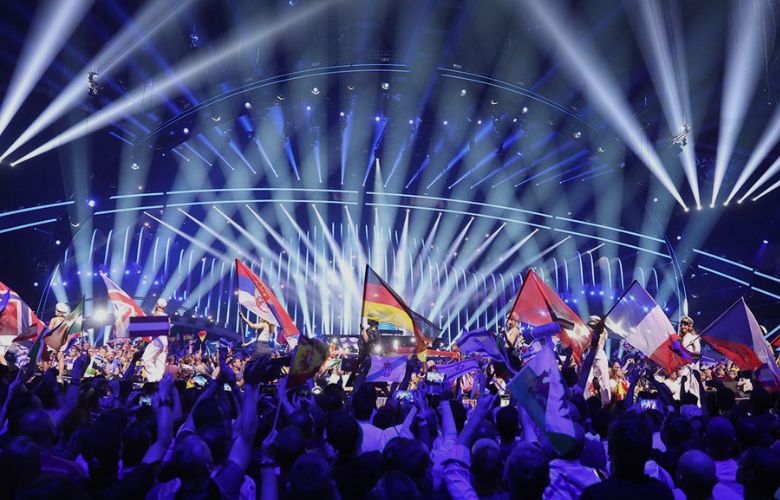
Following a stream of controversy and change in recent months, it has now been announced the Eurovision voting system will change in 2023. After the 2022 show saw accusations of rigging and dishonesty, the new approach is an attempt to make the points and scoring much more transparent and fairer for the competitors.
The organisers of the Eurovision Song Contest the EBU released a statement explaining how the changes would work. They explained that only viewer votes will decide countries qualifying from Semi-Finals, that viewers in non-participating countries will be able to vote online, and jury votes will, as before, be combined with viewer votes to decide the final result.
The countries that qualify from the two Semi-Finals, 10 from each, will now be decided solely based on the votes cast by viewers of the competition, rather than a combination of a jury and public vote as has been the case since 2009.
And, for the first time ever, those watching in countries not taking part in the competition will also be able to vote for their favourite songs online.
Their votes will be added together and converted to points that will have the same weight as one participating country in both of the Semi-Finals and the Grand Final.
Professional juries, made up of those working in the music industry, will continue to contribute to the result of the Grand Final along with viewers in each country taking part and those voting internationally.
As previously reported by TheatreArtLife, there was controversy in 2022 over irregular voting patterns in six countries. The hope is that the 2023 event will run more smoothly with the changes. Martin Österdahl, the Eurovision Song Contest’s Executive Supervisor said:
“Throughout its 67-year history the Eurovision Song Contest has constantly evolved to remain relevant and exciting. These changes acknowledge the immense popularity of the show by giving more power to the audience of the world’s largest live music event.
In 2023 only Eurovision Song Contest viewers will decide which countries make it to the Grand Final and, reflecting the global impact of the event, everyone watching the show, wherever they live in the world, can cast their votes for their favourite songs.
By also involving juries of music professionals in deciding the final result, all the songs in the Grand Final can be assessed on the broadest possible criteria. We can also maintain the tradition of travelling around Europe and Australia to collect points and ensure a thrilling voting sequence with the winner only revealed at the very end of the show.”
37 countries will compete to win the 67th Eurovision Song Contest in Liverpool on 9, 11 and 13 May. 31 countries will then compete for 20 places in the Grand Final alongside France, Germany, Italy, Spain, hosts the United Kingdom and 2022 winner Ukraine
The competition is being hosted by the BBC in the UK on behalf of Ukraine following Kalush Orchestra’s win for their country in Turin in May 2022.
Accessibility At The Smith Center Series: Part One
James “Fitz” FitzSimmons Interview: The Boys In The Band On Netflix


Michelle is a musician and composer from the UK. She has performed across the UK and Europe and is passionate about arts education and opportunities for women and girls.
Read Full Profile© 2021 TheatreArtLife. All rights reserved.

Thank you so much for reading, but you have now reached your free article limit for this month.
Our contributors are currently writing more articles for you to enjoy.
To keep reading, all you have to do is become a subscriber and then you can read unlimited articles anytime.
Your investment will help us continue to ignite connections across the globe in live entertainment and build this community for industry professionals.